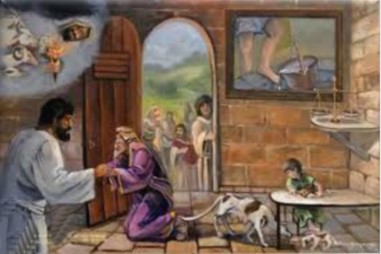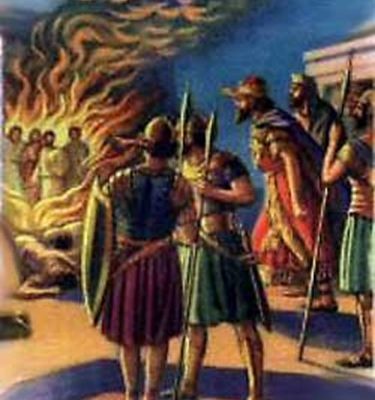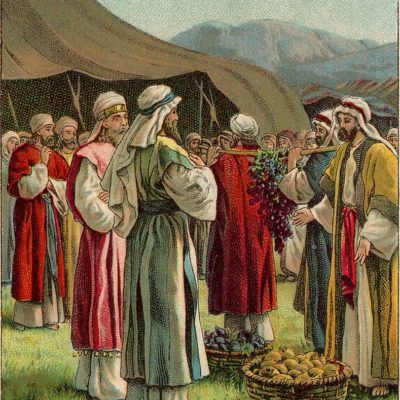Canaanite Woman or Syrophenician Woman

The Syrophenician woman was a foreigner not one of the children of Israel. She was not a Christian who followed Jesus. She was a foreigner an outsider who had confidence and faith that Jesus Christ could heal her daughter. Her perseverance, faith and courage are an attribute we could all learn from. Matthew 15:21-28, Mark 7:24-30
The woman in this lesson is referred to as a woman of Canaan in Matthew 15. Then in Mark 7 she is identified as the woman being a Greek, a Syrophenician by nation. Already we know Syrophenician this are Gentile born in the Phoenician part of Syria. Phoenicia was the coastal area of northern Palestine, and Syria was farther inland. Both Phoenicia and Syria would have been under Roman rule. (Brand, 2003).
The Syrophenician woman is another woman who does not have a name because what she did was more important than a name. She came out from the coast of Tyre and Sidon, the same coast that Jesus had departed. Mark tells us that Jesus wanted to go unknown. This was not going to happen because the woman cried after Jesus telling Him saying; “Have mercy on me, O Lord, thou Son of David; my daughter is grievously vexed with a devil.” (Matthew 15:21-22).
When Jesus did not answer her, the disciples demanded Jesus cast her away. It was not the proper thing to do for a woman to yell after a man of any kind let alone a man traveling with other men. It was not cultural correct for a woman to interact in any way with people from different cultures. She did acknowledge that Jesus was Lord and also the Son of David. She was on a mission to save her daughter who was an unclean spirit. Cultural rules did not matter to her, what people thought about did not matter to her only her daughter did.
Jesus answered the disciple and reminded them that He was sent only to the lost sheep of the house of Israel. This meant because this woman was a foreign woman and not from the house of Israel she was not included. Jesus did not send her away the disciples had asked Him to do. (Matthew 15:23).
The Syrophenician woman was persistent and instead of running away she came and worshipped Jesus still asking the Lord to help her. It must have been out of desperation that made this woman be so courageous and determined to get help from the Lord. The only thing that seemed to be important to the Syrophenician woman was that her daughter be helped by Jesus.
Even when Jesus answered it is not good to take the bread of children and cast it to dogs the Syrophenician woman still was persistent and said to Jesus: “Truth, Lord: yet the dogs eat of the crumbs which fall from their masters’ table.” That is when Jesus told her she was a woman of great faith and because of her great faith her daughter was made whole from that very hour. (Matthew 15:26-28).
What a courageous woman who took the almost insults, being called she was not good enough for the food of Israel, and she was called a dog. She let all this go by the way side and even argued back. Then the great reward came. Her daughter was made whole that very hour because of her faith.
The Syrophenician woman demonstrated great faith, courage, and confidence that Jesus could heal her daughter. She is a great example for us to emulate. It would have been easier for this foreign woman to give up the first time she ran into hard times. The first time she was told to go away. Yet her need and her faith were stronger than the rejection by the disciples and even by the Lord. She believed.
We need to remember that this Syrophenician woman was a foreigner not one of the children of Israel. She was not a Christian who followed Jesus. She was a foreigner an outsider who had confidence and faith that Jesus could heal her daughter and she was not going to take no for an answer.
What is it going to take for us to have that kind of faith and confidence that whatever we ask in the name of Jesus will be done? This Gentile born in the Phoenician part of Syria, a foreigner had faith in Jesus and even though she was turned away more than once she still endured because she had faith.
“Verily, verily, I say unto you, He that believeth on me, the works that I do shall he do also; and greater works than these shall he do; because I go unto my Father. And whatsoever ye shall ask in my name, that will I do, that the Father may be glorified in the Son. If ye shall ask any thing in my name, I will do it. If ye love me, keep my commandments. And I will pray the Father, and he shall give you another Comforter, that he may abide with you for ever; Even the Spirit of truth; whom the world cannot receive, because it seeth him not, neither knoweth him: but ye know him; for he dwelleth with you, and shall be in you. I will not leave you comfortless: I will come to you. (John 14:12-18).
Reference:
Brand, C. Draper, C. Archie England, A. et al., (2003). Holman Illustrated Bible Dictionary. Nashville, TN: Holman Bible Publishers. P. 1548.
Cite Article Source
MLA Style Citation:
Holstein, Joanne “Canaanite Woman/ Syrophenician Woman:.” Becker Bible Studies Library Feb 2015.< https://guidedbiblestudies.com/?p=2199,>.
APA Style Citation:
Holstein, Joanne (2015, February) “Canaanite Woman/ Syrophenician Woman:.” Becker Bible Studies Library. Retrieved from https://guidedbiblestudies.com/?p=2199,.
Chicago Style Citation:
Holstein, Joanne (2015) “Canaanite Woman/ Syrophenician Woman:.” Becker Bible Studies Library (February), https://guidedbiblestudies.com/?p=2199, (accessed).


